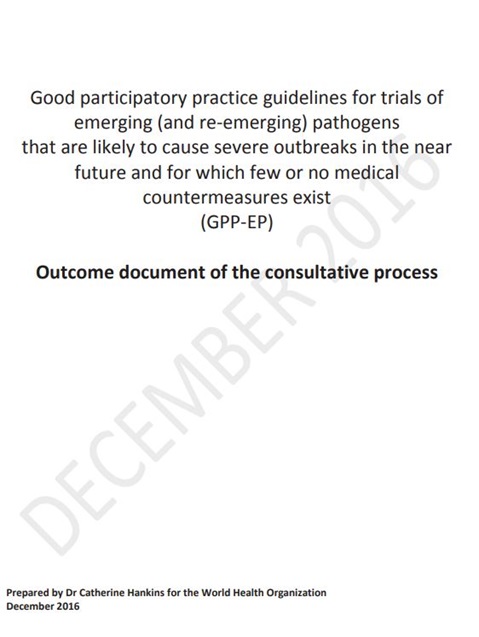Good Participatory Practice for trials of (re-)emerging pathogens (GPP-EP): Guidelines
Good participatory practice guidelines for trials of emerging (and re-emerging) pathogens that are likely to cause severe outbreaks in the near future and for which few or no medical countermeasures exist (GPP-EP)

Overview
Good participatory practice guidelines for trials of emerging (and re-emerging) pathogens that are likely to cause severe outbreaks in the near future and for which few or no medical countermeasures exist (GPP-EP)
The primary audience for the good participatory practice guidelines for emerging pathogens (GPPEP) is all those involved in designing, financing, and implementing prevention and treatment trials of emerging or re-emerging pathogens. These are pathogens that are causing or are likely to cause severe outbreaks in the near future and for which few or no medical countermeasures exist. They include diseases such as Ebola virus disease, Crimean Congo haemorrhagic fever, Marburg, Lassa fever, MERS and SARS coronavirus diseases, Nipah, Rift Valley fever, Chikungunya, severe fever with thrombocytopaenia syndrome, Zika, and other known and as yet unknown pathogens.
This guidance specifically addresses good participatory practices during trials conducted in health emergency contexts where accelerated research processes are needed.
GPP-EP is the only set of global guidelines that directly address how to engage stakeholders in the design, conduct, and conclusion of emerging pathogen prevention and treatment trials. When applied over the trial life-cycle, the GPP-EP guidelines enhance both the quality and outcomes of research.
